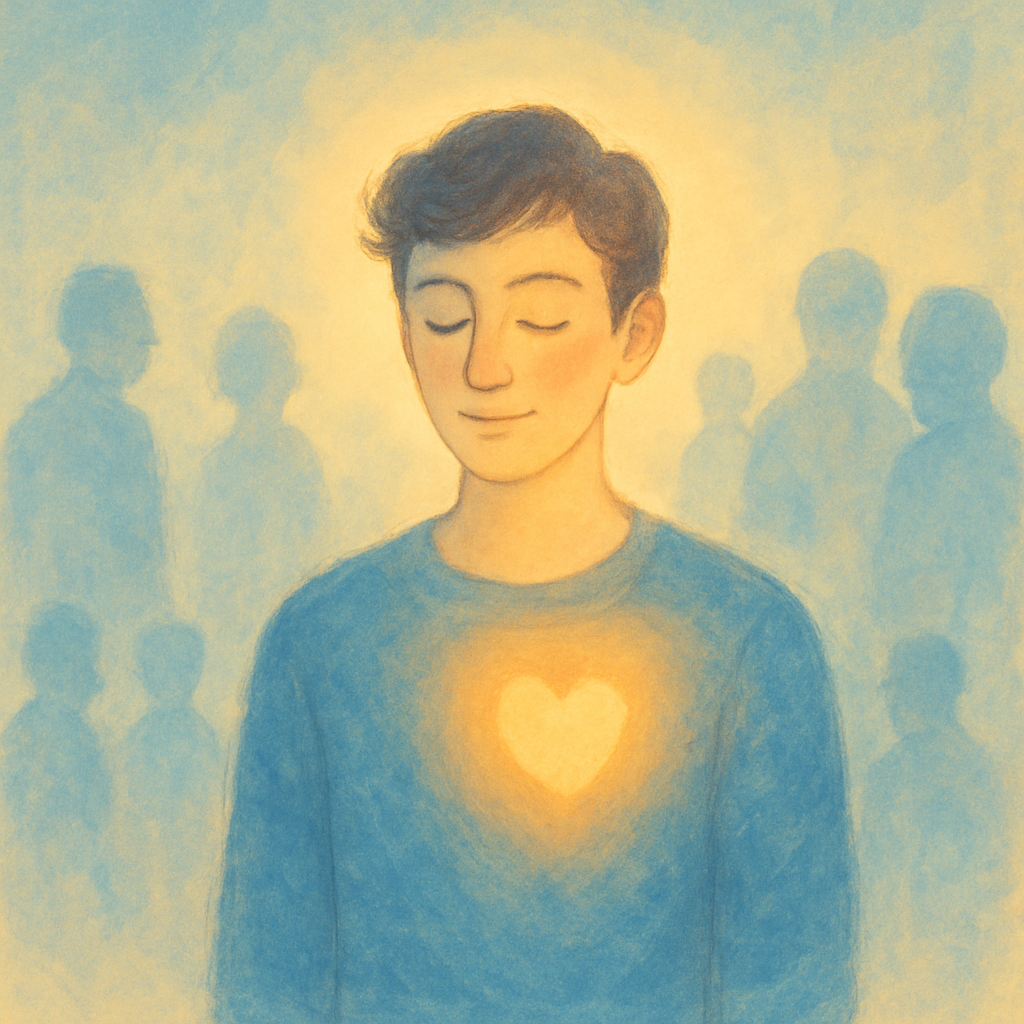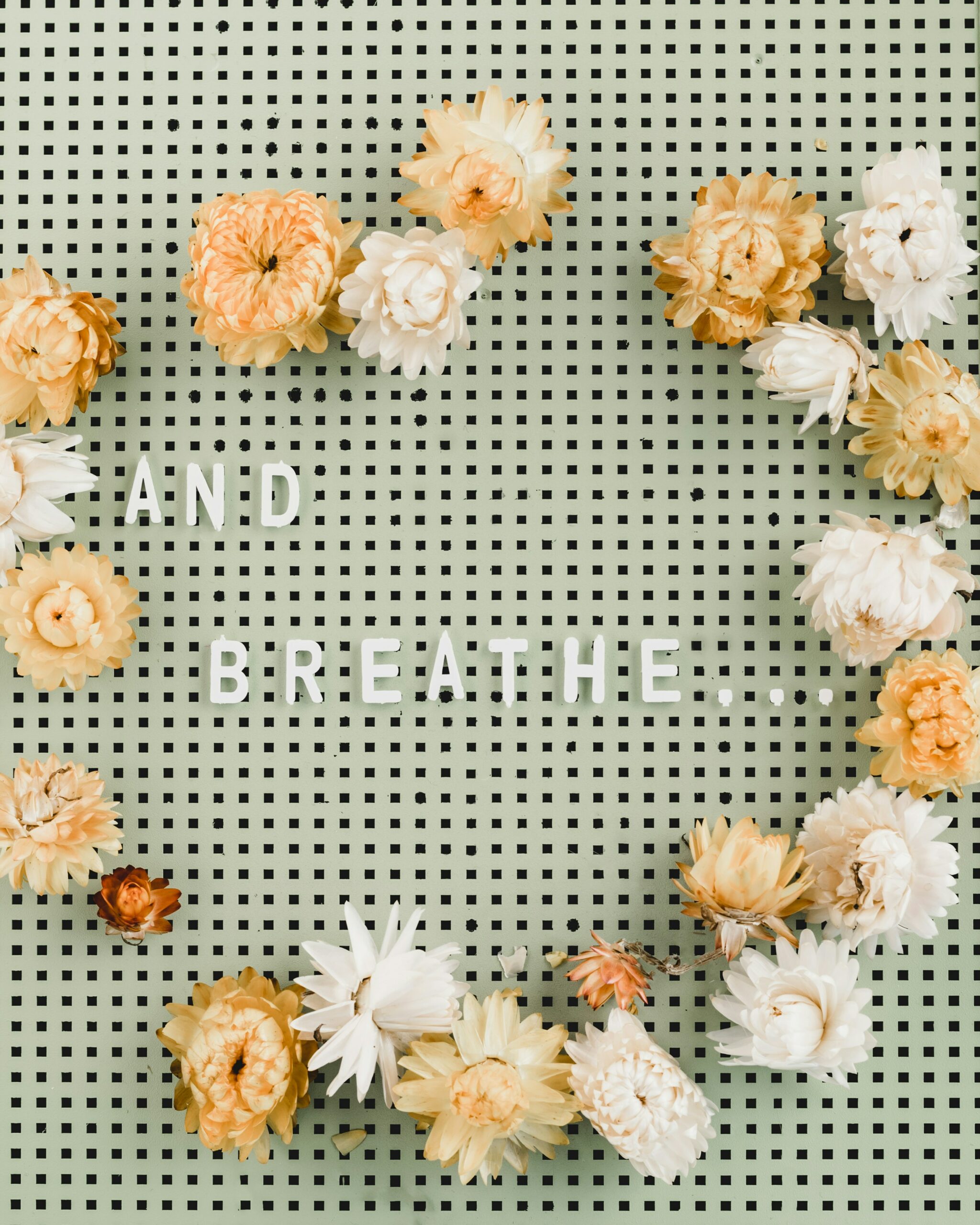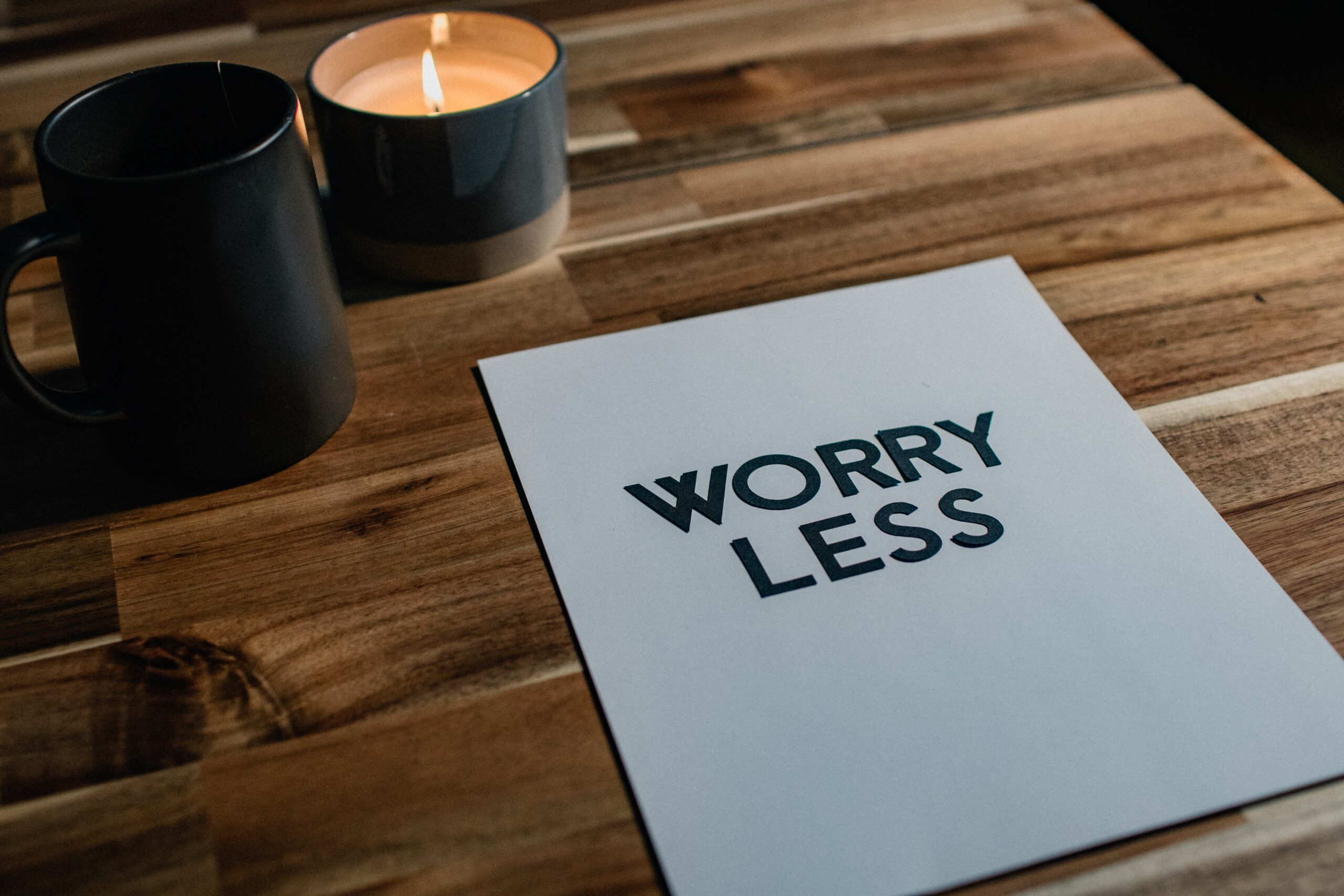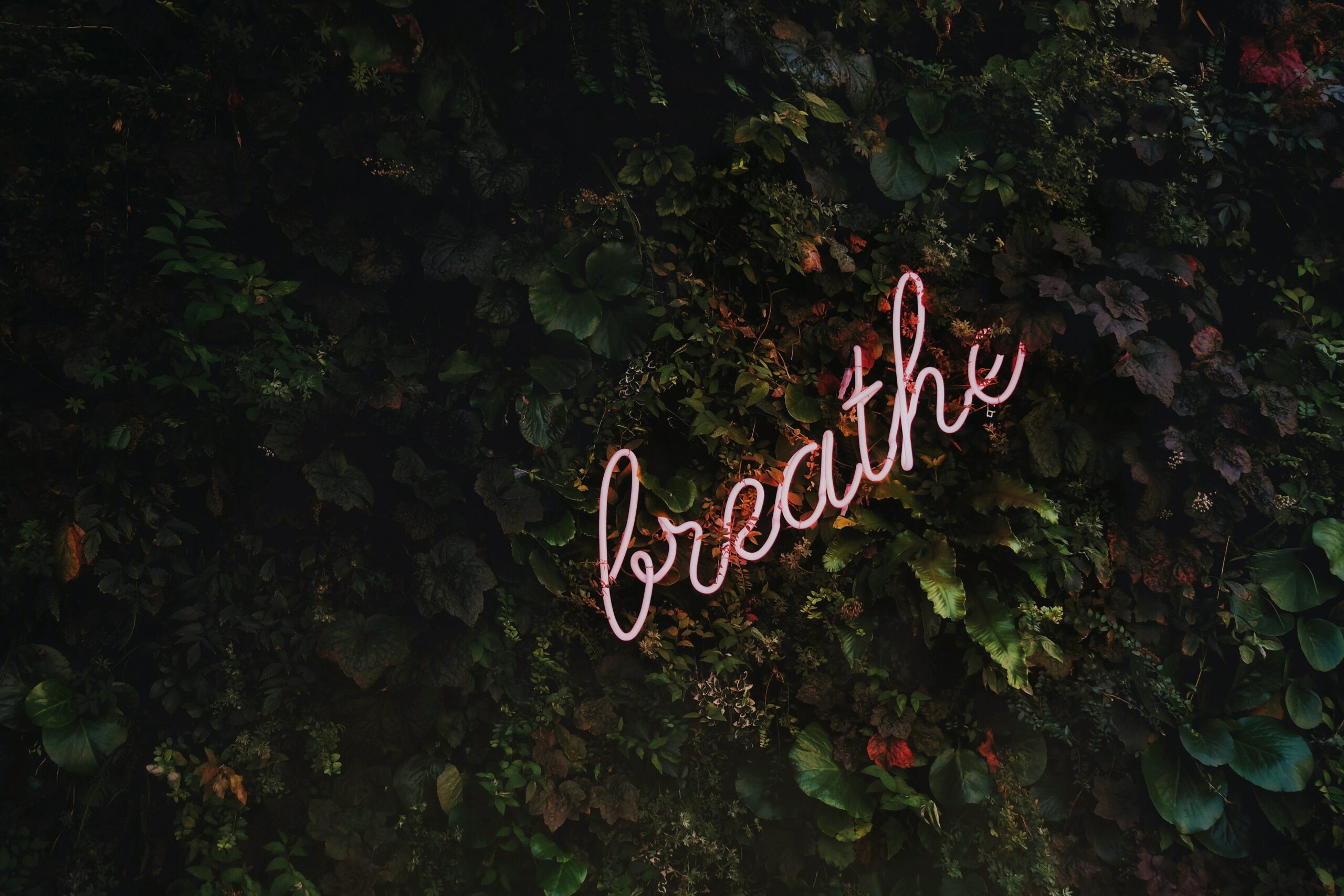That knot in your stomach before a work meeting. The way your mind goes blank when someone asks you a simple question. The exhaustion that follows even brief social interactions. If these experiences feel familiar, you are not alone—and what you are feeling makes complete sense.
Social anxiety is not just “being shy” or something you should simply “get over.” It is a real experience that affects how your nervous system responds to social situations, and it deserves understanding, not judgment.
What is Really Happening When Social Anxiety Strikes
Your Body’s Ancient Alarm System
When you walk into a crowded room and feel your heart racing, your brain’s alarm system—designed to keep our ancestors safe from predators—is responding to what it perceives as a threat. The problem is that this system can not distinguish between a charging bear and a room full of colleagues.
Your sweating palms, racing thoughts, and urge to flee are not character flaws. They are your nervous system doing exactly what it evolved to do, just in a context where that response is not particularly helpful.
The Spotlight Effect
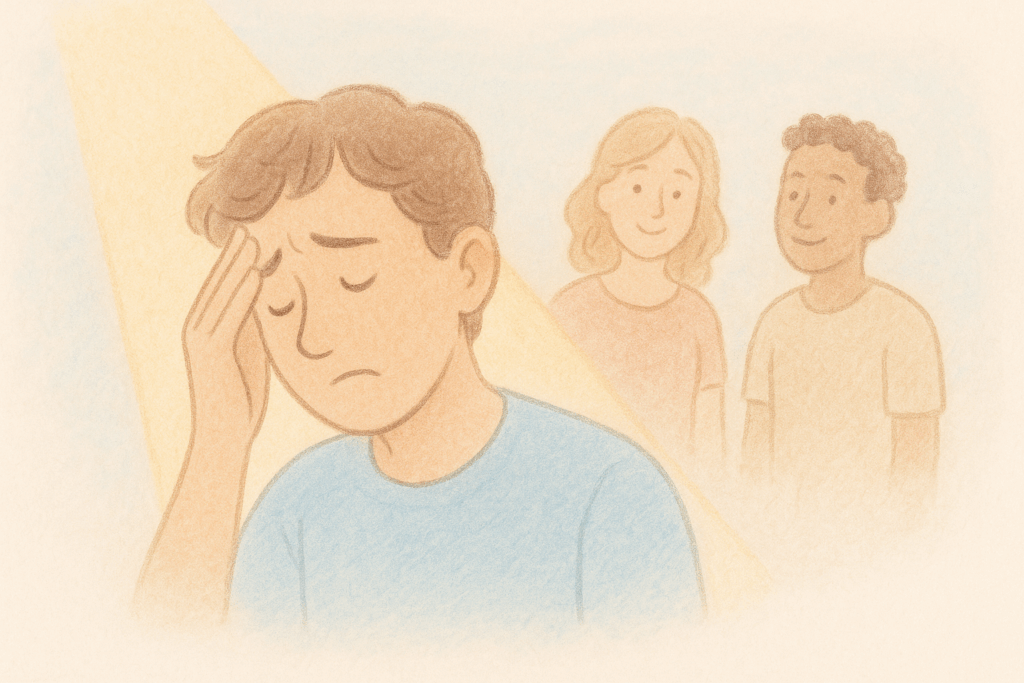 Research shows that people dramatically overestimate how much others notice their behavior—psychologists call this the “spotlight effect.” That stumble over words that felt mortifying to you? Most people either did not notice or forgot about it within minutes.
Research shows that people dramatically overestimate how much others notice their behavior—psychologists call this the “spotlight effect.” That stumble over words that felt mortifying to you? Most people either did not notice or forgot about it within minutes.
This is not dismissing your experience—your feelings are valid. It is offering perspective that can help reduce the pressure you put on yourself.
Small Steps That Actually Work
Start with Micro-Interactions
Instead of forcing yourself into overwhelming situations, try these genuinely small steps:
- Make eye contact with one person while walking down the street
- Say “good morning” to a neighbor you usually just nod to
- Ask “how is your day going?” to someone who serves you coffee
- Send a text to an old friend saying you are thinking of them
These are not silly baby steps—they are building blocks. Each interaction proves to your nervous system that social connection is safe.
The “Good Enough” Conversation
You do not need to be brilliant, witty, or fascinating. Most people remember how you made them feel more than what you said. A conversation where you:
- Listen with genuine interest
- Ask follow-up questions
- Share something honest (even if it is simple)
- Show up as yourself
…is infinitely more valuable than one where you perform being someone you think others want you to be.
Rewriting Your Inner Narrative
Notice the Story Your Mind Tells
Social anxiety often comes with a running commentary: “They think I am boring.” “I should not have said that.” “Everyone can see how nervous I am.”
Try this: When you catch these thoughts, ask yourself, “Is this thought helpful right now?” Not whether it is true or false—just whether it is helping you connect with others or making the situation harder.
Develop Your “Evidence Detective” Skills
When your mind insists that everyone is judging you, become curious:
- “How do I actually know what they are thinking?”
- “What evidence supports this thought?”
- “What evidence contradicts it?”
- “What’s a more balanced way to see this situation?”
This is not about forcing positivity. It is about reality-testing the stories your anxious mind creates.
Practice Self-Compassion
Treat yourself with the same kindness you would show a good friend facing the same struggles. When you mess up socially (and everyone does), instead of harsh self-criticism, try:
“That was awkward, and that is okay. Everyone has awkward moments. I am learning, and I am doing my best.”
Building Your Support Network
Find Your People
Look for communities where your interests naturally intersect with others—book clubs, hiking groups, volunteer organizations, or online communities around shared interests. When you are focused on something you care about, social interaction often feels more natural.
Consider Professional Support
If social anxiety significantly impacts your daily life, therapy can be transformative. Approaches like Cognitive Behavioral Therapy (CBT) and Acceptance and Commitment Therapy (ACT) have strong research support for treating social anxiety.
You would not hesitate to see a doctor for a broken arm. Your mental health deserves the same level of care and attention.
The Truth About Recovery
Recovery from social anxiety does not mean becoming an extrovert or never feeling nervous again. It means:
- Feeling anxious sometimes but not being controlled by that anxiety
- Developing confidence in your ability to handle uncomfortable social moments
- Building genuine connections based on who you actually are
- Knowing that your worth is not determined by others’ opinions
Some days will be easier than others. Progress is not linear, and setbacks do not erase your growth.
Your Path Forward
The goal is not to eliminate all social discomfort—some nervousness in new situations is normal and even adaptive. The goal is to live the life you want despite anxiety, not to wait until anxiety disappears to start living.
You have qualities that the world needs: your thoughtfulness, your sensitivity to others’ feelings, your careful attention to how your words affect people. These are not weaknesses to overcome—they are strengths to celebrate while you work on feeling more confident expressing them.
Your journey with social anxiety is uniquely yours. Be patient with yourself, celebrate small victories, and remember that seeking support—whether from friends, family, or professionals—is a sign of wisdom, not weakness.
The people worth knowing will appreciate you for who you are, social anxiety and all. Your voice matters, and the world is better when you are willing to share it.
